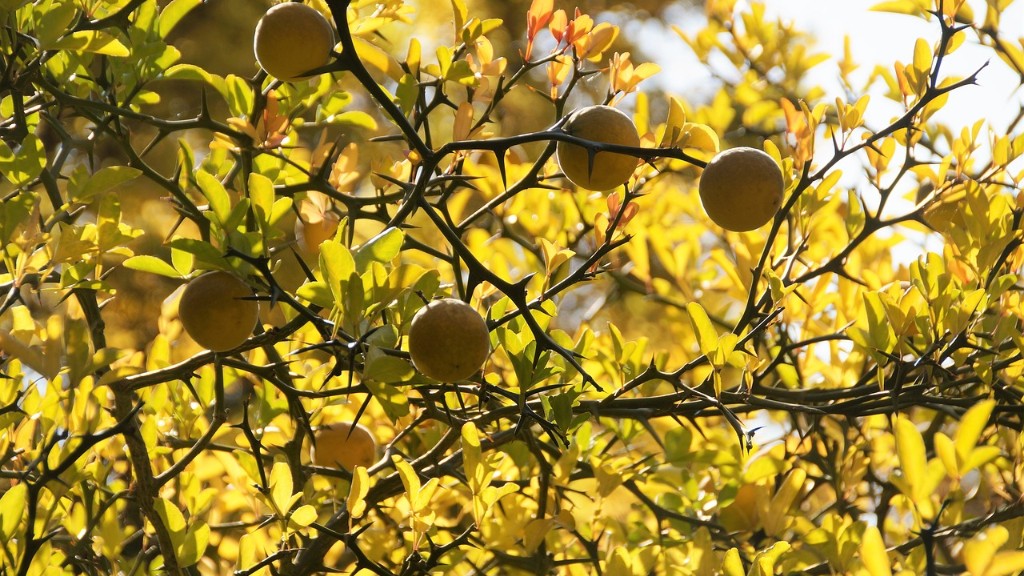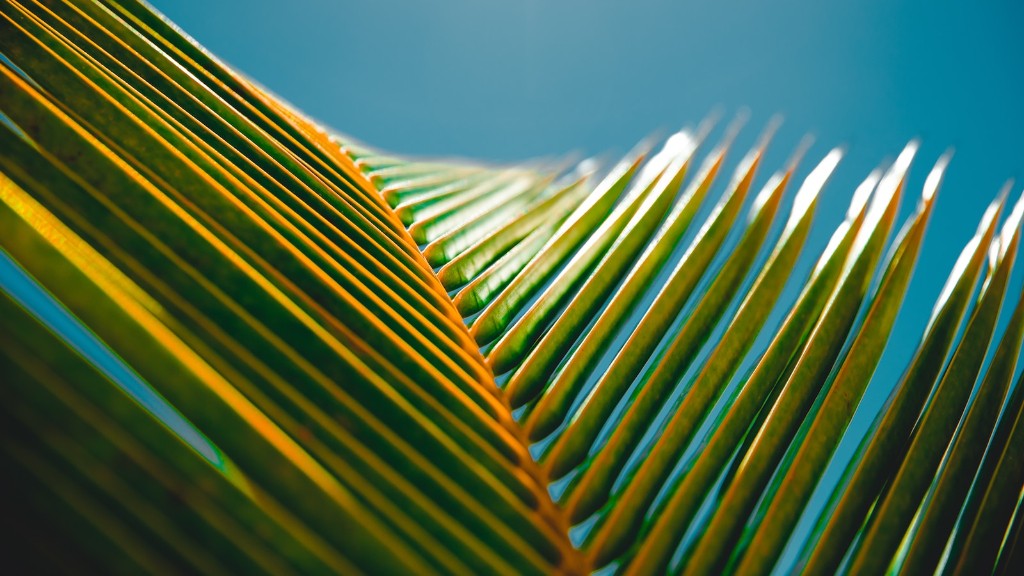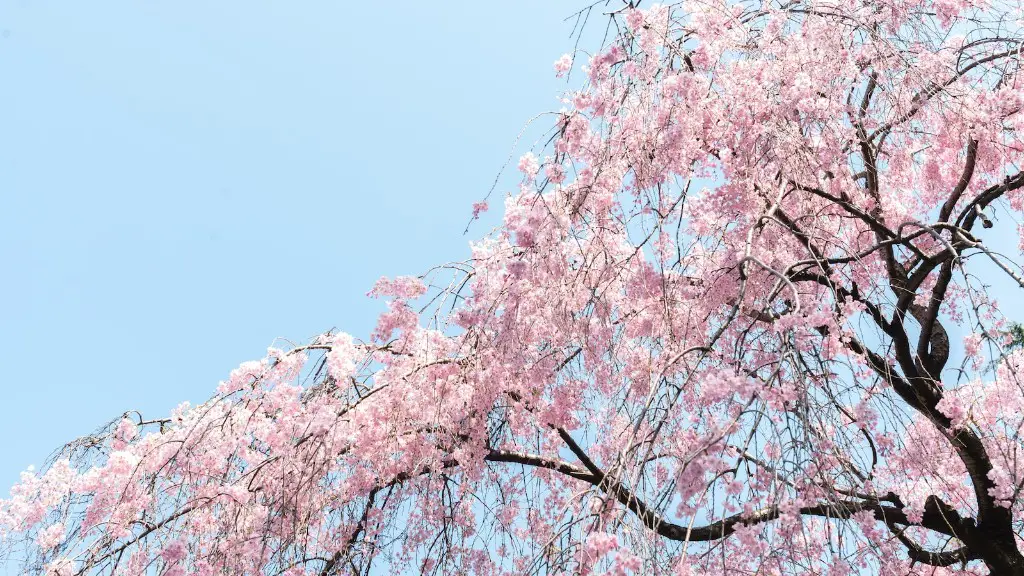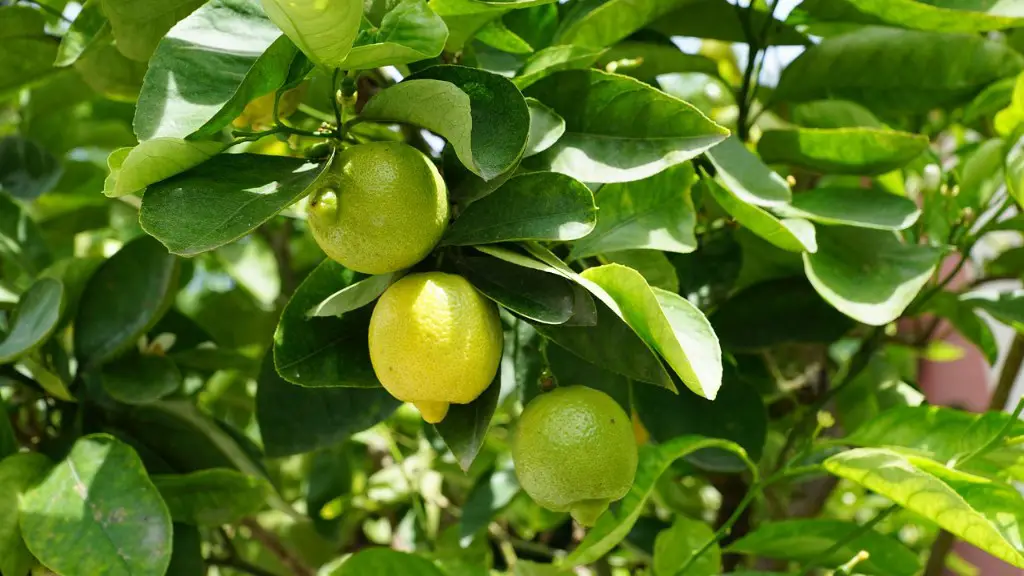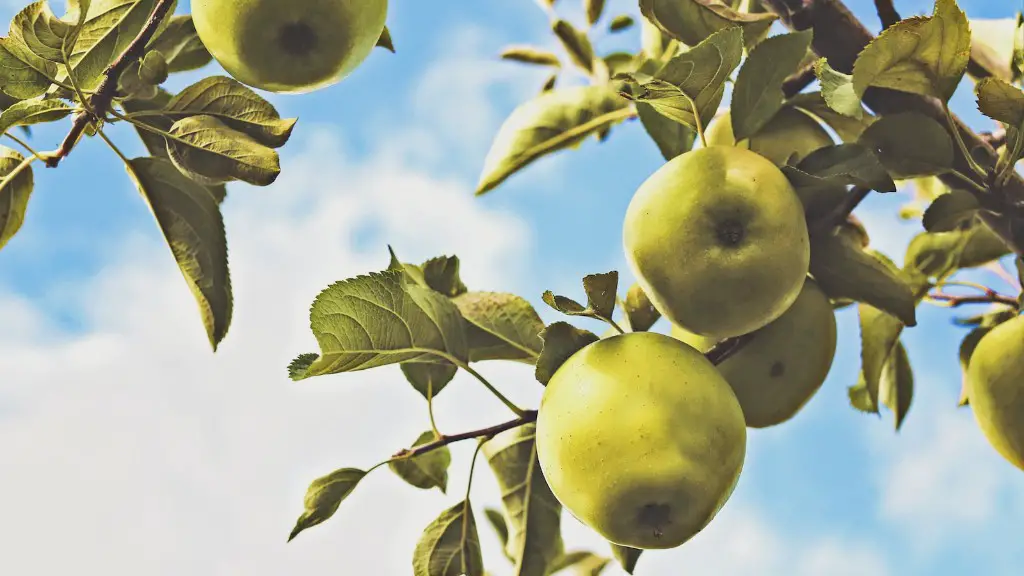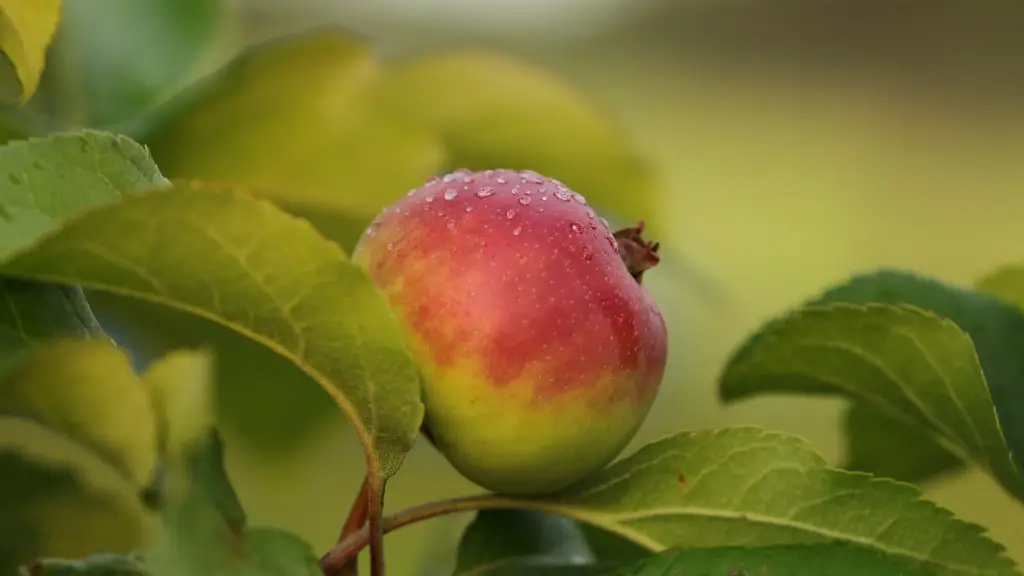Scale is an insect that can infest a lemon tree and cause it to become unproductive and develop an unhealthy appearance. It is important to understand how to kill scale on a lemon tree in order to keep it healthy and productive. The following steps outline how to get rid of scale on a lemon tree.
1. Identify the presence of the scale. Scale appears as small, brown to black bumps on the twigs and leaves of a lemon tree. These bumps can be scraped away to reveal a white, waxy scale underneath.
2. Isolate the affected tree. To prevent the scale insects from spreading to other plants, it is important to isolate the affected tree by establishing barriers around it.
3. Prune the affected branches if necessary. Dead, dried-up, or heavily infested branches should be removed to prevent scale from spreading further.
4. Water the plant. Watering the tree well can help to flush out some of the scale insects.
5. Use horticultural oil. Cover the tree with a horticultural oil spray to smother any remaining scale insects that may still be on the plant.
6. Monitor the plant. Monitor the tree after the treatment, watching for signs of re-infestation and repeating treatment as necessary.
7. Remove fallen scale. Finally, rake up and dispose of fallen scale insects, which may have survived the treatments.
Types of Scale In Lemon Tree
The scale insects found in lemon trees can vary in size, shape, and color. There are two main types of scale that can be found in a lemon tree: armored scale and soft scale. These two types have very different life cycles and biology, and they require different treatments.
Armored scale species produce a hard, protective shell on their bodies and are usually circular or oval in shape. They can be brown, gray, or black in color and feed on the tree’s sap by piercing the bark and sucking out the nutrient-rich fluids. Soft scale is larger, rounder, and less protected than armored species. Soft scale can vary from yellow to brown in color.
Scale feeding and behavior can cause leaves to curl and wilt, branches to die, and sap to clog the tree’s vascular system. The presence of scale insects can also attract ants, which can further damage the tree by spreading other harmful infestations.
It is important to identify the type of scale insect that is causing the infestation so that the correct treatment can be applied.
Preventive Measures
The best way to control scale is to prevent it from occurring in the first place. Proper pruning, irrigation, and fertilization are important. Proper pruning helps provide the tree with enough sunlight and air circulation and eliminates any overcrowded or sickly branches that can be susceptible to pests and diseases.
Also, make sure to keep the plant well watered and fertilized. A lack of water can make the tree more susceptible to pests and diseases by weakening its defenses, so unseasonably dry conditions should be carefully monitored and managed.
Finally, keep the area surrounding the tree clean and free of debris, such as fallen leaves and fruits, as these can attract pests. Additionally, regularly inspect the tree for any new infestations or signs of damage that can indicate the presence of scale.
Treatment Options
Treating a scale infestation can be challenging, as some species are resistant to chemical treatments. If the infestation is not serious or widespread, manual removal may be sufficient. Thoroughly inspect the tree and remove any scale phenotyping with a cotton swab or a fine-gauge paintbrush.
If the infestation is widespread, chemical treatments may be necessary. Insecticidal soaps, horticultural oils, and neem oil are effective in killing scale insects. Make sure to read and follow the product label carefully and to not apply the treatment if it is too cold or too hot.
If you are dealing with a large infestation or an infestation that is not responding to treatment, then an insecticide containing chemicals such as dinotefuran, imidacloprid, or buprofezin may be necessary but should only be used as a last resort.
Keep in mind that chemical treatments can be harmful to people and pets, so make sure to read and follow the product label carefully.
Cultural Controls
In addition to chemical treatments, there are some cultural control techniques that can help to reduce scale infestations and prevent re-infestations. The most important of these is to maintain healthy, balanced growing conditions. This requires providing the tree with adequate water, proper fertilizer, and lots of sunlight and airflow.
Additionally, you should look for any possible sources of infestation such as nearby plants, trees, or other plants that may be carrying scale insects. If you find any, then carefully dispose of the affected plants and take steps to prevent their return.
Finally, consider introducing beneficial insects, such as ladybugs or lacewing, which prey on scale insects. These can help to keep scale populations in check and create a natural balance.
Chemical Alternatives
Scale infestations can be difficult to manage, and chemical treatments are necessary in some cases. However, some homeowners prefer to avoid chemical treatments due to concerns about their safety and environmental impacts, and they may instead opt for natural or organic remedies.
Neem oil is one such remedy that can be very effective against scale infestations. Neem oil is a natural product derived from neem trees and contains compounds that are toxic to many insects, including scale. It is up to 90% effective in killing scale insects and can be applied directly to the tree or sprayed over a wide area.
Insecticidal soap is another natural remedy that is effective against scale insects and is widely available from garden centers and online. This is a specially formulated soap solution that contains fatty acids and other natural compounds that target and kill scale. It is generally quite safe for humans and other organisms.
Finally, beneficial predators, such as lacewing and ladybugs, can also be used to control scale infestations. These predatory insects feed on scale, thus controlling the population and helping to prevent re-infestation. They can be purchased from garden centers or online.
